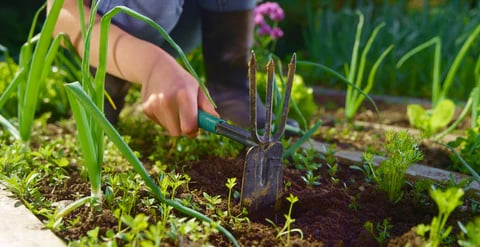How Organic Soil Helps Your Garden Thrive
Blog post description.
7/3/20251 min read


Gardening is more than just planting seeds and watering them it’s about building a strong foundation for plants to grow healthy and happy. And that foundation starts with organic soil.
But what exactly is organic soil, and how does it help your garden grow better?
🌾 What Is Organic Soil?
Organic soil is made from natural materials like compost, decayed plants, animal manure, and microbes. It contains no synthetic chemicals or pesticides. This type of soil is full of life worms, fungi, and helpful bacteria all work together to improve soil quality and plant growth.
🌿 Benefits of Organic Soil in Gardening
Nutrient-Rich
Organic soil is packed with essential nutrients like nitrogen, phosphorus, and potassium that plants need to grow strong stems, healthy roots, and lush leaves.Better Water Retention
The natural materials in organic soil hold moisture longer, meaning you don’t need to water your garden as often perfect for hot climates or busy gardeners.Improved Soil Structure
Healthy soil means better air circulation and root development. Organic soil stays loose and crumbly, helping roots spread easily.Supports Microbial Life
Good microbes in the soil protect your plants from diseases, improve nutrient absorption, and keep the ecosystem balanced.Chemical-Free & Eco-Friendly
You’re not just growing plants; you're protecting the environment by avoiding harmful pesticides and artificial fertilizers.
🌼 How to Use Organic Soil in Your Garden
Start with compost: Mix compost into your existing soil to enrich it naturally.
Add organic matter regularly: Use kitchen scraps, dried leaves, and grass clippings.
Rotate your crops: Different plants use different nutrients. Rotating helps keep the soil balanced.
Use organic mulch: It keeps moisture in and weeds out.
Why Organic Soil Is Better for the Environment
Organic soil doesn’t just help your plants — it supports a healthier planet too. By avoiding synthetic fertilizers and pesticides, you reduce water pollution, air contamination, and long-term damage to the land. Plus, when organic materials decompose, they trap carbon in the soil, helping fight climate change.
